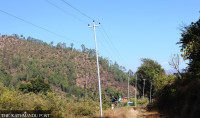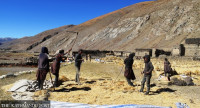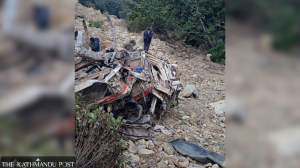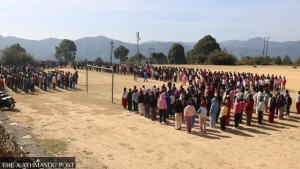Karnali Province
Telemedicine service benefits Karnali folk
Residents of remote villages can easily access specialist services after the telemedicine service was launched in 42 health institutions of six districts of the province.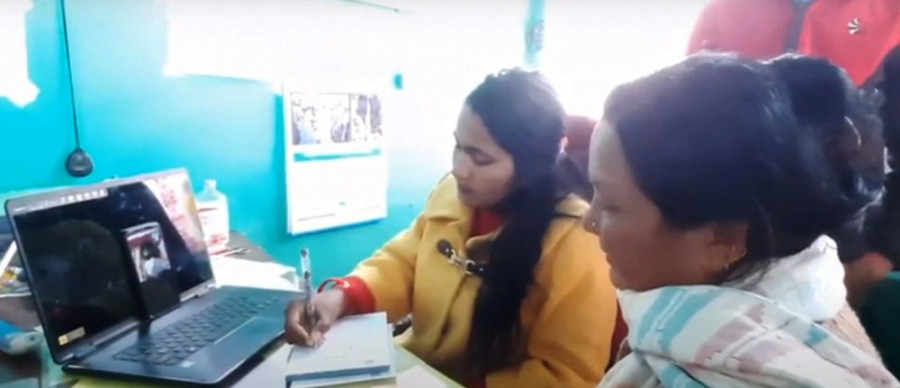
Chandani Kathayat
Two weeks ago, 12-year-old Basun Rokaya of Tripurasundari Municipality Ward No. 6 in Dolpa got his hand fractured. His parents were worried about his treatment, as the Dolpa District Hospital does not have an orthopaedic specialist. But the hospital succeeded in treating the boy through telemedicine services.
Dr Subodh Shrestha, orthopaedic specialist at the Provincial Hospital in Surkhet, instructed the health workers at the Dolpa hospital with the help of electronic communications and treated the boy.
Telemedicine services were introduced in the District Hospital of Dolpa a month ago. Before the introduction of the service, people in far-flung villages of the district were compelled to visit city areas to seek medical help, as the district hospital did not provide specialist services.
But the residents of remote villages in Karnali Province can easily access specialist services these days, as telemedicine service was launched in 42 health institutions of six districts of Karnali Province.
Currently, district hospitals and health posts in Jajarkot, Humla, Mugu, Surkhet and Dolpa are providing telemedicine services.
Health workers say that in a country like Nepal, where ensuring affordable and accessible community health care is a major challenge, telemedicine service could be a game changer. Doctors deployed at telemedicine centres would collect cases, which would be monitored by specialists. The specialists would then advise doctors serving in remote districts on medication and treatment of patients through electronic communication means.
“Skin diseases, health problems in women and children, emergency pregnancy complications and orthopaedic cases, among other health issues, can be addressed by telemedicine service through video conferencing,” said Dr Nawaraj KC, the provincial coordinator of telemedicine service. “Specialists and health workers can discuss the health issues and solve them. Telemedicine service helps in providing specialist treatment in remote areas.”
Dr Prasanna Karki of Dolpa Hospital said that doctors at the health institution have gained new knowledge and skills after the introduction of telemedicine service.
“The specialist doctors regularly provide consultations and we keep them informed about patients’ medical state on a daily basis,” Karki said.
A telemedicine operator section has also been established at the Provincial Hospital.
“Internet, computer and android systems have been installed for the operation of telemedicine service,” said Narendra Chand, a health assistant. “Health institutions make a telephone call in the operator room or in my mobile phone. I call the concerned doctors after diagnosing the illness and start a video conference for the treatment of patients.”
A separate software named “Karnali Care” has been developed to keep a record of the patients in the province. According to the Provincial Hospital, the employees of the respective health institutions receive certain communication expenditures for making telecommunication possible.
Karnali Provincial Government has also made a separate directorate for the operation of telemedicine service. According to Dr KC, the service is going to be launched in all health institutions of Karnali.
“We are trying to manage the internet service and computers in all health institutions of the province,” he said.
So far, around 400 Covid-19 patients in home isolation and 447 other patients have received consultation through the telemedicine service in Karnali Province.
“Telemedicine service was also effective during last year’s pandemic,” said Dr KC.
In 2009, the telemedicine service was launched in Nepal from 25 districts.




 14.12°C Kathmandu
14.12°C Kathmandu




